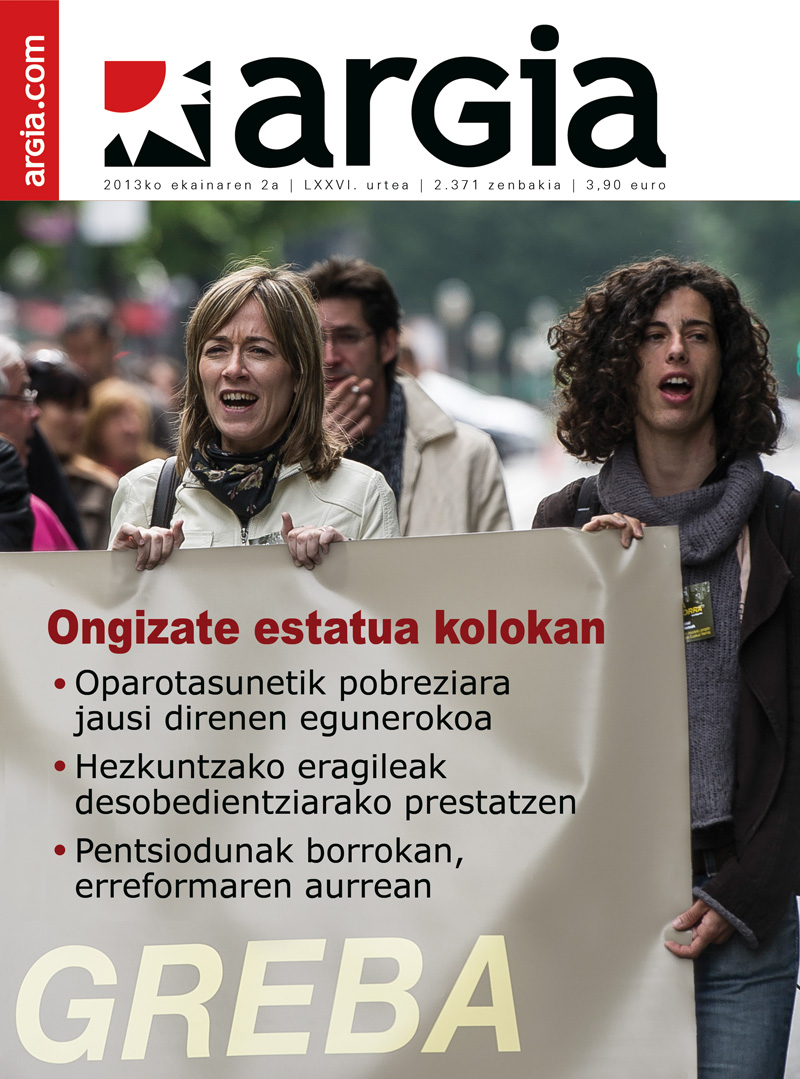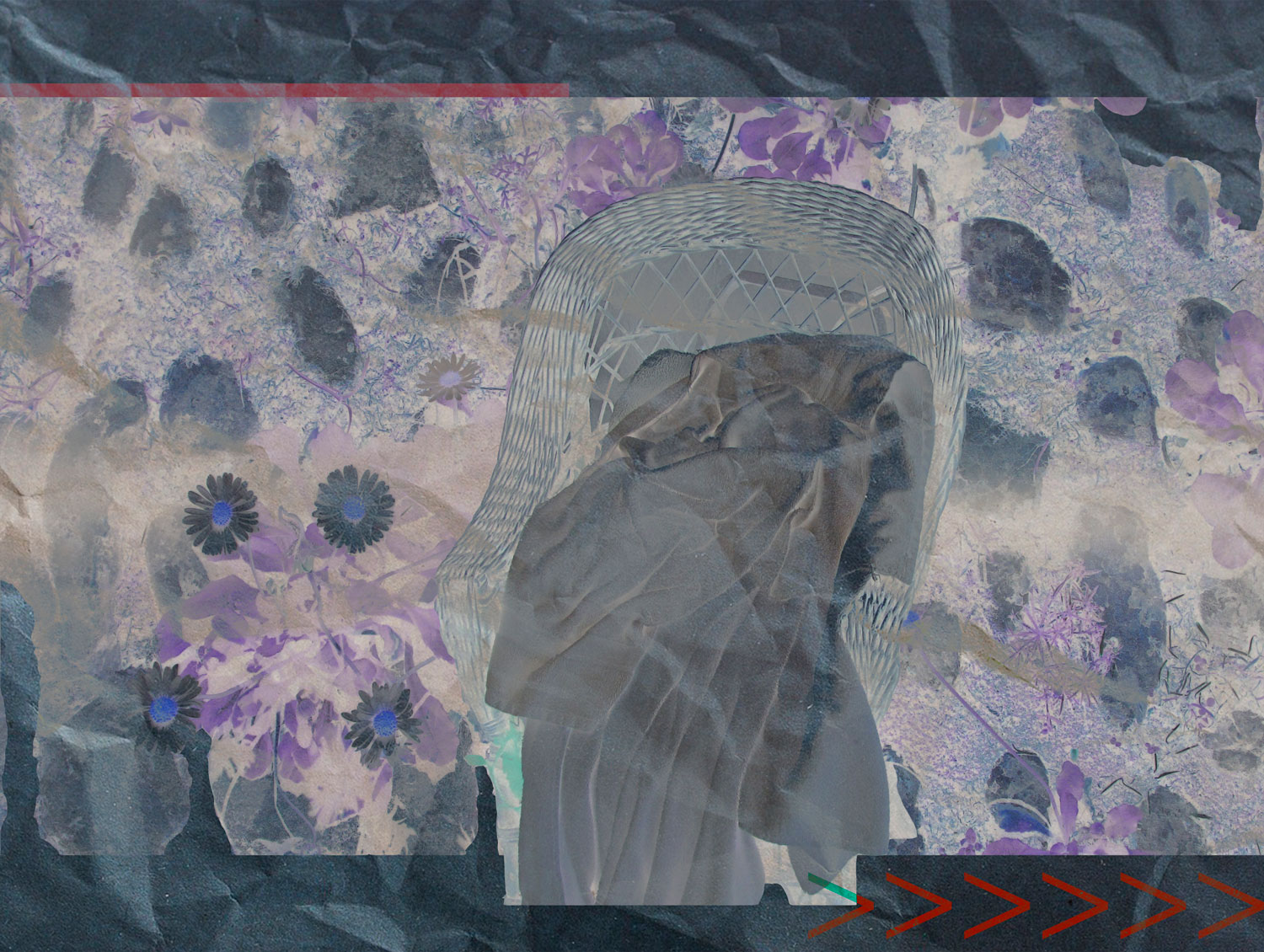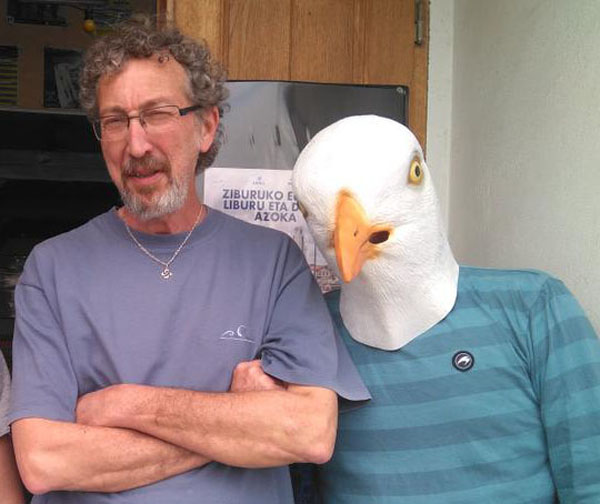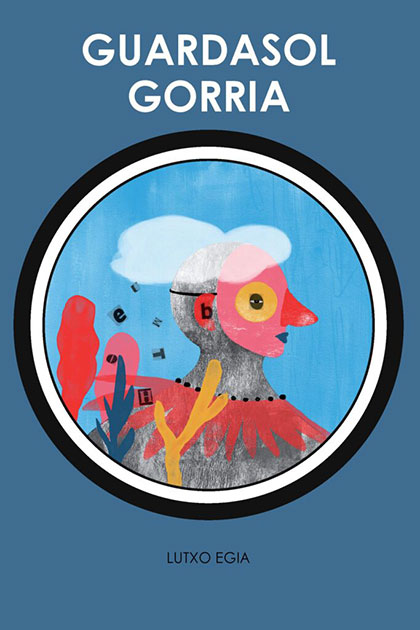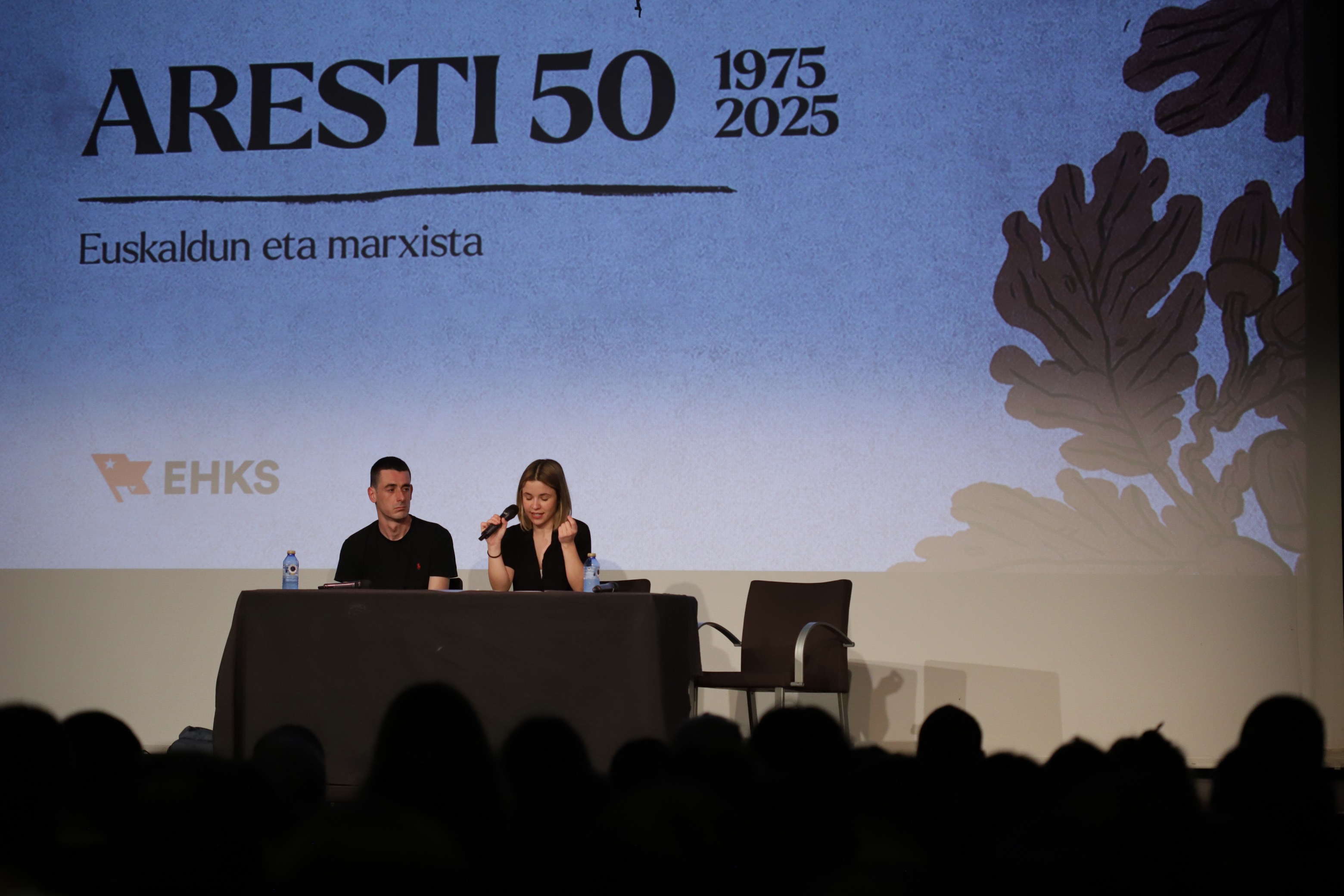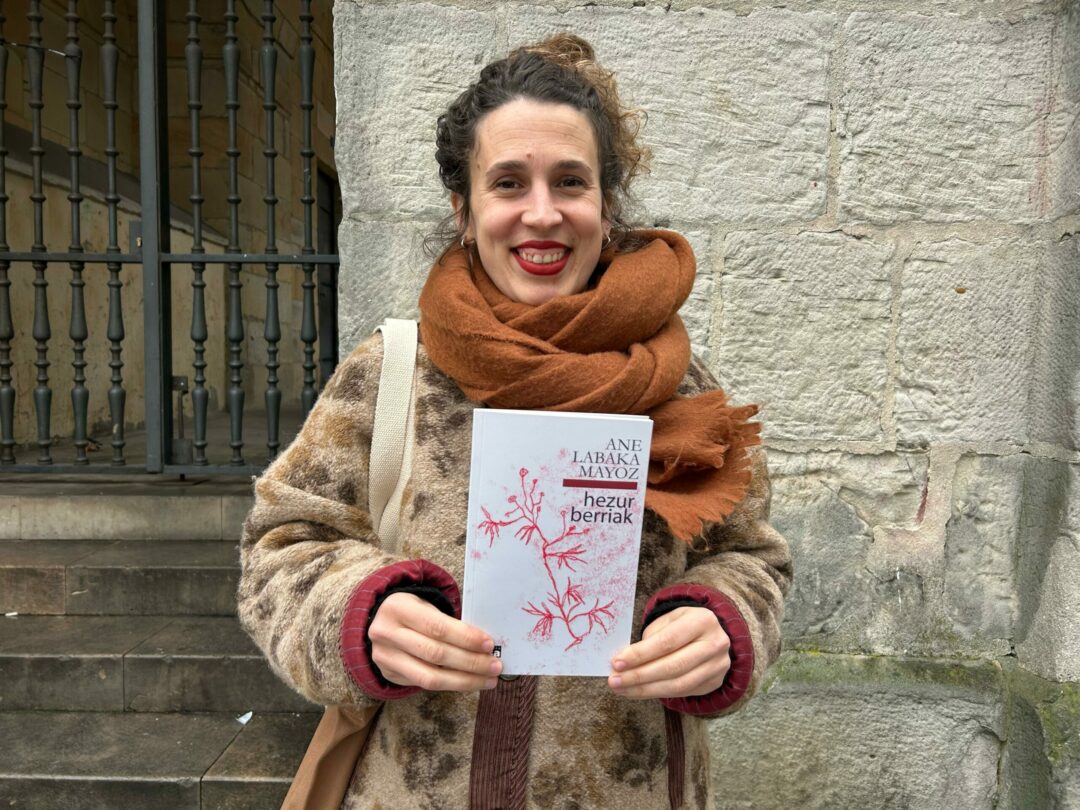Basque literature in the boga, in Hendaya
- On June 5, from 11:00 a.m. until 8 p.m., 109 people will read the novel Boga-boga by Itxaro Borda. It will be the fourth public reading this year, and for the first time, the entire Basque Country has been invited to participate.
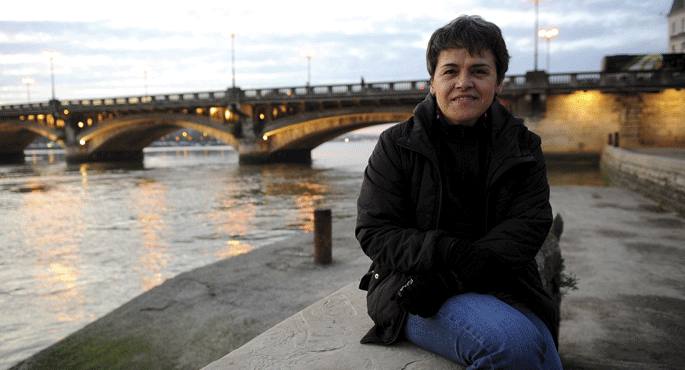
Literature, the effort to promote reading, the visibility of the Basque Country and the pleasure are found in the same network in the public reading that is always organized on Wednesdays in this first round of June. The initiative affects all people, from schools to companies, leisure groups, associations, institutions or individuals, including the Akelarre Cultural Association. This year, in its fourth edition, they wanted to extend the scope beyond the borders of the locality.
The date will therefore be Day 5. From 11 a.m. to 8 p.m., 109 people, among other personalities, will read the novel Boga-boga by Itxaro Borda. Thus: Bertsolaris AMETS Arzallus and Subai Hill, Mayor Battitt Sallaberry, Socialist politician Kotte Ezenarro, journalists Beatrice Molle and Frank Dolosor, the editor of the editorial Susa Gorka Arrese, the president and musician of SEASKA Paxkal Indo...
Since 2010:
The first public reading organized in Hendaia was about the legends of Euskal Herria, and counted with the presence of anthropologist Anuntxi Arana as guest and sponsor of honor. At the event it launched, 65 readers from 7 to 75 years of age met. In the second year, the protagonist was Lucien Etxezaharreta, and on the occasion of his book of stories Inter Porcos (Maiatz, 2007), 101 people addressed the issue of animals. They read old stories, fables, songs, stories, poetry and others, as well as others created specifically for it, like the text of Mikel Ibarguren. In these two readings, everyone chose the reading they liked and came with the reading in their hands, in front of the microphone. Because there were also many students, they were live, less formal editions.
In the third program last year, 70 people of all ages read the novel by the writer Hasier Etxeberria, which was published a long time ago: Balada de Inesa.
For this year’s edition, Detective Amaia Ezpeldoi has been in charge of unraveling the mysteries she has to clarify. The novel has been located in Baiona and Iparralde, and they particularly liked rugby, the sweeping woman, Lesbian relations, the consequences of the political and social situation of the time and the critical spirit of the writer.
As of last year, all sessions will be recorded – unless otherwise stated – and can be continued live on stream at the address www.akelarre-hendaia.com. Outside the Mediateka, a screen will also be installed for the initiative to be present outside the room.
To enrich the reading, in addition, and be able to enjoy the lexical care of Itxaro Borda, the dictionary prepared by Joxan Elosegi has been included in the same direction. In his words, “Borda’s literature, its text, and in that it is important, from the Eastern language, especially from the language modes of Amikuze and Zuberoa, a path as rich as enriching that has led to the modern standard Basque”.
This year’s reading budget is EUR 1030. The 660 edition will be carried out by the Basque Cultural Institute and 370 by the Akelarre Association.
Nola sortu zen ekimena? Literatur taldea al dago ideiaren atzean?
Ez zen zehazki taldearen ideia izan, bertako bi zororena baizik, biak irakasleak. Oso kontzienteki ez bazen ere, ikasleak irudikatzen genituen jendaurrean irakurtzen. Jakina, babestuta, helduez edo, hobeto esan, euskal hitzak orobat maite dituen jendeez inguratuta. Zergatik bereizi behar dira haurrak eta helduak publikoaren aitzinean? Bestalde, Arriagako irakurraldia ezagutzen genuen eta Hendaian ere egin genezakeela iruditzen zitzaigun eta horrelaxe proposatu genion Akelarreri. Babesa eman ziguten, eta azpiegitura eskaini. Beraz, eta galderari helduz, Akelarrek badu literatur taldea, baina irakurraldia antolatzen duena hiru kidez osatutako beste talde bat da. Jakina, elkarren ifrentzua gara.
Zer helburu du irakurraldiak?
Luzarorako helbururik ez du. Ez gara ari misio baten ardura bageneuka bezala, eta hura galduko balitz katastrofea gertatu litzatekeenaren ustean. Ez zaigu iruditzen irakurzaletasuna bultzatzeko edo euskara maitatzeko nahitaezkoa denik. Egunen batean irakurraldirako ilusiorik inon ez bada, bukatuko da eta kito. Jarraipenaren bermeak ez gaitu axolatzen. Ilusioa, kemena eta denbora maite dugunari eskaintzen diogu. Beraz, helburuak oso hurbilekoak dira: hurrengo urtean ere Irakurraldi Publikoa gauzatzea.
Hastapeneko helburuek bere horretan diraute. Hala nola, adin guztiak nahasirik publiko aurrean jardutea batetik, eta bestetik, idazlan bat ezagutaraztea eta bide batez sortzaileari oihartzun mediatikoa eta gure onespena eskaintzea.
Ondorioez mintzatuko bagina, esango nizuke irakurmen kolektiboaren gozamena sustatzen dugula parte-hartzaileen artean, eta euskara ikasten ari direnei, berriz, euskara besteei emateko parada ere eskaintzen diegula.
Zer eboluzio izan du lau urteotan?
Parte-hartzeari dagokionez oso gustura gaude. Haurra edo heldua izan, jendaurrean irakurriko duten testua ondo prestatu behar dutela esaten diegu denei. Ez dugu perfekzioa eskatzen, irakurlea testuan sar dadin baizik, berea egin dezan. Hitzak ulertzea, ahoskatzea, idazlearen munduaren zatitxo horretan sartzea.
Eskarmentu handia irabazi dugu antolaketa mailan. Urteko lan agenda finkatu eta garaian garaiko eginbeharrak burutzen saiatzen gara: liburua hautatu, idazlearen adostasuna, publizitatea erakarri, irakurleak bildu, komunikabideetan agertu, irakurraldiko eguna finkatu… Ahalegin handia egiten dugu idazlea gure artean ongi senti dadin, eta urtetik urtera hobeto asmatzen dugulakoan gaude.
Zer panorama ikusten duzue Hendaian euskarari eta literaturari dagokionez?
Pertzepzio partziala dut. Euskal hiztunen talde-agerpenak izan badira, baina gordeak. Esan nahi baita, badira tokiak non euskaraz ari garen: ikastola, irakurraldia, bertso saioak, antzerkia, zinema, dantza… baina gero, kanpoan, euskal hiztunen kolektibo hori ez da ageri, lausotuta gelditzen da. Hendaian erosketak egiten dituzunean, hondartza aldeko ostatuetan ibiltzean, non dira euskaraz badakiten horiek guztiak? Ez dira ageri, alta badira. Bizimoduak beti okupatuta egotera bultzatu gaitu, eta dagoeneko ez dugu denborarik ez dirurik kalean gure artean biltzeko. Aldiz, mota guztietako ekimen sozialak ditugu: kirola, kultura, politika. Sekula baino gehiago, nire ustez.
Euskalduntasuna gure egin eta plaza publikoan agertu behar dugu helduok. Euskararen etorkizuna ez dira haurrak, geu gara, helduok, nagusiok; geure borondatez pentsatu, planifikatu, neurriak jarri eta ekiditeko gai garenok. Haurrentzako pedagogiarik onena etsenplua da, eta koherentzia. Haurrek ikastetxeetako jolastokietan euskaraz hitz egin behar badute, guk ere bai tabernan eta gure artean.
Gure literaturari dagokionez, erantzuna aurrekoari lotuta dago. Literatura aipatu eta batzuk terminoak berak beldurtzen ditu. Bi alderdi bereiziko nituzke. Batetik, nola liteke euskara dakien hainbeste lagunek –jende nagusiaz ari naiz, irakasleak barne– hain analfabeto irautea bere lehen edo bigarren hizkuntza den horretan? Deus ez irakurtzea, ez idaztea… Gainditu behar dira nagia, zailtasuna eta denbora falta. Bestetik, irakurtzeak ez du esan nahi bakarrik egin behar denik. Taldean ere egin daiteke. Taldean, irakurri eta mintzatu, biak egiten dira. Taldea toki aproposa da euskaraz irakurtzen hasi nahi duenarentzat.
Zerk animatuko zaituzte hurrengo bat ere antolatzera?
Guk atsegin dugun zerbait egiteak, xinpleki. Denbora izateak eta antolaketarako azpiegiturak ere laguntzen du. Ilusioak naturalago irauten du horrela.
Martin Martina and the Mystery of the Golden Comb
by Amancay
Gaztelañaga Batu, 2024
-----------------------------------------------------
Amancay Castañaga launches the mystery of Martín Martina and the golden comb accompanied by the illustrations of Alain Martínez... [+]
The annoying noise of the works of the neighbors has awakened me even today. I put my head on the pillow, and I tried to sleep for another twenty minutes, but there was no one to shut that drill down. I woke up and looked at the table of duties that I did at the beginning of... [+]
Guardasol gorria
Lutxo Egia
Susa, 2024
Under the asphalt, the flower
Text: Monica Rodriguez
Illustrations: Rocío Araya translation
of: Itziar Ulcerati
A fin de cuentos, 2025
Ereserkiek, kanta-modalitate zehatz, eder eta arriskutsu horiek, komunitate bati zuzentzea izan ohi dute helburu. “Ene aberri eta sasoiko lagunok”, hasten da Sarrionandiaren poema ezaguna. Ereserki bat da, jakina: horra nori zuzentzen zaion tonu solemnean, handitxo... [+]









